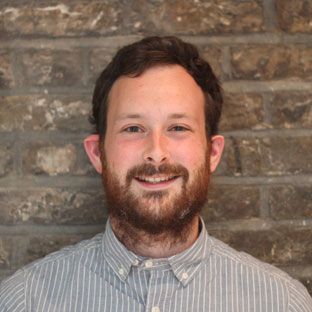Today we publish Developing Socially Productive Places, which explores the relationship between the physical and social aspects of community-building and place-making.
We want to challenge and support local authorities, developers, communities and businesses to deepen their understanding of what makes places good for people in the long term. (Social productivity is defined as the additional social value that can be created through better relationships between citizens, society, business and public services.)
During a period when property values are rising in most parts of the UK and development activity is picking up, a key concern of local authorities and other accountable bodies is that economic growth must benefit residents while improving public finances. Many areas face population pressures and ageing infrastructure, and new development is a key driver of change.
Development is one of the most powerful drivers of local political engagement, and therefore the planning process represents a significant gateway to stronger community relations and dialogue on a range of issues.
In the report, the RSA draws on the keynote address made to April's conference by former housing minister Mark Prisk MP. Mark Prisk outlined the challenge to provide dense development while balancing the need for long-term flexibility and public and private interests. Several examples in the report illustrate how progressive approaches can support socially and economically valuable outcomes at different stages of the development process – from engaging communities in planning to evaluating impact on well-being.
The financial crisis of 2008 led to a stalling of many development projects across the UK and highlighted the fragility of relying on corporate financing to change the physical assets in a place. From a tumultuous period of recent economic history, new approaches to placemaking are beginning to emerge, often led or catalysed by community groups, and based on a clear expression of values and outcomes.
Creativity, appropriation, and a rediscovery of the ability of citizens to shape their everyday spaces are highlighting the benefits of emergent and adaptive approaches – with ‘pop-up’ and ‘meanwhile’ temporary uses becoming more common in the mainstream landscape.
We argue transition should be considered a structural feature of the way places will be built, with a new set of tools that deal with this uncertainty.
The report highlights that developing places involves initiatives big and small, temporary and long-lasting. Development does not always have to come from developers. A plurality of approaches is needed. While community-led development approaches can be nimble, large corporate developers can bring significant value, leveraging money, resources and expertise beyond that available locally, and having the ability to operate at speed and scale. This means all types of developers will require a wide range of new competencies: successful place-making requires an understanding of how people, households and community networks respond to and use the opportunities afforded by the built environment.
Socially productive places are neighbourhoods and districts where people are enabled individually and collectively to meet their own needs and achieve their aspirations for issues which matter to them.
Policymakers need to do more to develop frameworks in which communities, developers and councils can sustain long term partnerships. Long-term property value is driven by the long-term economic relevance of an asset. Remaining relevant in the long-term requires places to be adaptable. Managing the forces and harnessing the potential of development through planning requires resources, capacity and coordination. Local authorities therefore have a crucial role in using planning and development to reinforce wider social and economic objectives.
Ultimately the success of a development should be judged by its impact on those who use it, and its ability to contribute to a broader set of social and economic outcomes. Planning is a frontline public service, which doesn’t exist in isolation from other public sector roles which influence how a place functions. Investing in planning can bring value to other public sector objectives, and pro-actively strengthen relationships between developers, incoming people and businesses and existing communities.
Progress will only be made if both public and private sectors, individuals and community groups, collaborate in new ways. We want today's report to stimulate conversations up and down the UK about how we can best develop socially productive places.
Jonathan Schifferes is a Senior Researcher and lead author for the report. He is working on the City Growth Commission and you can follow him on Twitter (@jschifferes)



Be the first to write a comment
Comments
Please login to post a comment or reply
Don't have an account? Click here to register.